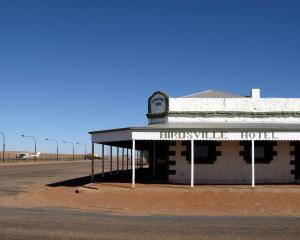
The remote, northern Canadian community where a shooter killed four people and injured several others on Friday has long struggled under the weight of poverty, high suicide rates and disadvantages that most of the country can hardly imagine.
The isolated town of La Loche, in the western province of Saskatchewan, and its neighboring Clearwater River Dene Indian reserve, six hours away from the nearest airport, embody the dire prospects for Canada's Aboriginals, also known as First Nations.
Unemployment stands above 20% in the community, suicide and addiction rates are high, homes are overcrowded and family violence is rife in the community which is mostly Metis, a culture with French and Aboriginal roots.
"If you know about this deadly mix of hopelessness and abuse and violence, and drugs and alcohol abuse, and racism and poverty, really it's a perfect recipe for something like this to happen," said Mark Totten, who spent five years working with Aboriginal youth in Saskatchewan, and is now a criminal justice professor at Humber College in Toronto.
Canada's new Prime Minister Justin Trudeau in December promised a "renewed, nation-to-nation relationship with First Nations peoples" and an inquiry into the high rates of missing and murdered Aboriginal women.
The 44-year-old was speaking after a report found the forcible separation of Aboriginal children from their families amounted to cultural genocide.
The community, set beside a lake and boreal forest at the end of a highway from southern Saskatchewan, one of Canada's wealthiest provinces due to its reserves of crude oil, potash and uranium, has a checkered history of violence.
In 2010, a man was shot dead in broad daylight across the street from the local police detachment. A year later, a mob torched a police truck and attacked two police officers, forcing them to barricade themselves in the local hospital.
Teen charged
Mass shootings are rare, however, even in Canada's most desperate corners.
Canadian police said on Saturday that a 17-year-old man has been charged with four counts of first degree murder, seven counts of attempted murder and unauthorised use of a firearm. He cannot be named due to his age.
Police, speaking a press conference, identified the victims as Dayne Fontaine (17), and Drayden Fontaine (13), teacher Adam Wood (35), and teaching assistant Marie Janvier (21).
A family friend and the town's acting mayor had said the gunman shot and killed his two brothers at home before killing a teacher and assistant at the school, and wounding several others.
"Lately we've been losing teenagers. They should be our future, but we see them in the graveyards now," Don Herman, uncle to the two brothers, told CBC television.
In La Loche, which has a population of 2600, 18 people committed suicide over a four-and-a-half year span to January 2010, the StarPhoenix newspaper said last year.
The annual suicide rate in the Keewatin Yatthe Regional Health Authority is the highest of any health district in Saskatchewan, the newspaper said.
"There's not much future after you graduate," said Raymond Dauvin, a long-time La Loche resident. "You have to leave town to work. And it's difficult, because if you leave town you're in an environment of other people who don't speak Dene. In a way, it's your nation up here."
Residents are caught between traditional and modern worlds, giving rise to "unimaginable" social problems that are symptoms of the loss of identity, said Ken Coates, director of the International Centre for Northern Governance and Development at University of Saskatchewan.
Elders who provide the last link to traditional Aboriginal life are dying, while television channels are easily available, offering a teasing window into an affluent southern world, he said.
"You're stuck in this halfway place, which creates this odd (question) of, 'Am I a northern person? Yes. But am I a Canadian in a full sense?'" Coates said.












